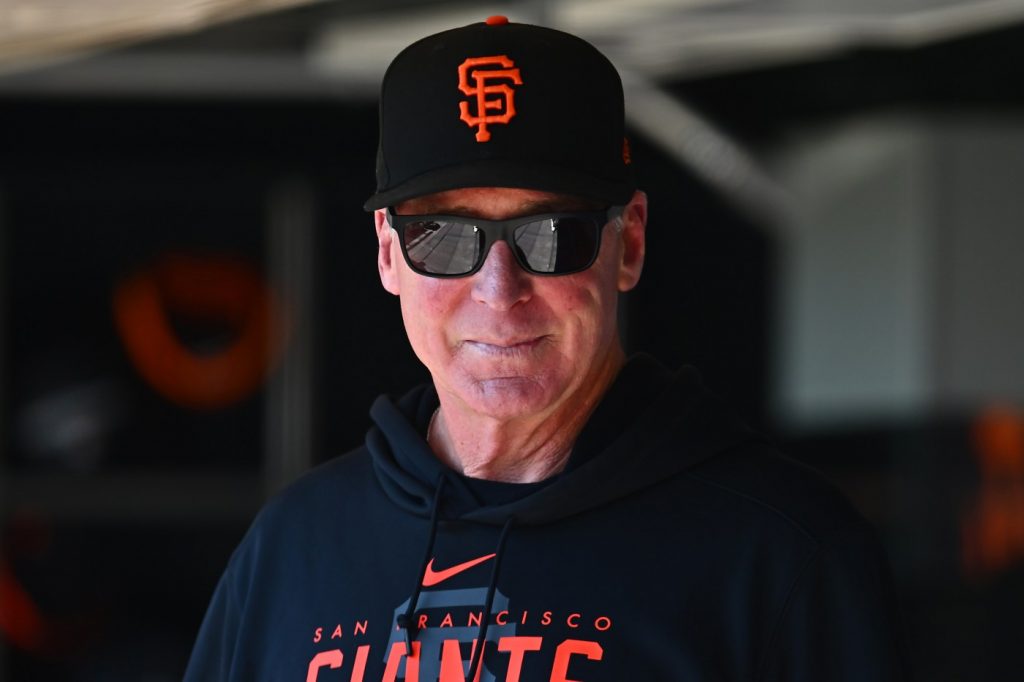In the moment, Bob Melvin didn’t understand the significance of playing at Rickwood Field. His primary focus, like that of his teammates, was getting to the majors. Four decades later, Melvin carries a different perspective.
“I’m really looking forward to getting back,” Melvin said. “Willie Mays has played there. Obviously, there’s the history of the Negro Leagues playing there in that ballpark. It really resonates now more so than when I was playing.”
On June 20, Melvin will return to Birmingham for the first time since his playing days and lead the Giants against the Cardinals in a special one-off game at Rickwood Field, the former stomping grounds of Mays and the Negro Leagues’ Birmingham Black Barons.
“Now that there’s such a spotlight on (the Negro Leagues), it’s going to be a really cool day — one of the cooler days in baseball this year,” Melvin said. “The fact that we have history there with Willie, guys are really embracing it. … There’s been a lot more written up about it, the history of the ballpark and the players that have played there. It just seems to be building momentum all the way up until the time we get there.”
After spending a year each at Cal and Cañada College in Redwood City, Melvin was drafted by the Detroit Tigers in 1981 and spent three of his first four professional seasons calling Rickwood Field home with the Birmingham Barons. Melvin played 245 games for Birmingham before moving on from Double-A for good, hitting 25 home runs with a .262 batting average with the club.
“I spent some time in the South during the early parts of my career and really enjoyed it,” the Palo Alto-born Melvin said. “It’s just part of the process. When you first get there, it’s a little bit different than living in California and you realize there are other places in the country. It’s going to be cool to be able to get back there.”
Melvin, now 62, was in his early 20s when he played with Birmingham from 1982-84. He couldn’t remember much about his time in the city, but he did recall Rickwood Field having a Mello Yello sign in right-center field with a basketball hoop attached. If a batter hit a ball through the hoop, which was slightly bigger than regulation size, they won $100.
“At the time, it was something that we had a little fun with, especially during batting practice,” Melvin said.
Rickwood Field is the oldest professional ballpark in the United States and the former home of the Black Barons, who played at the venue from 1924 through 1960. Every living Negro League player (157 total) has been invited to attend the game. That alumni base, of course, includes Mays.
Before his Hall of Fame career with the Giants, a 17-year-old Mays played with the Black Barons in 1948, collecting a hit off Satchel Paige during his time with the club. Mays helped Birmingham reach the final Negro World Series that October, where the Barons fell to the Homestead Grays.
Related Articles
SF Giants’ Heliot Ramos is playing like an All-Star. Can he sustain it?
SF Giants strike early, stake claim to series vs. Astros
Jordan Hicks solid despite battling flu, but SF Giants’ bats silenced by Astros
SF Giants’ Alex Cobb throws bullpen; Matt Chapman returns to lineup
‘He’s the man’: Austin Slater delivers walk-off win as SF Giants beat Astros in 10 innings
“I’m probably a little biased, but I think he’s the greatest player of all time,” Melvin said. “What he meant to this area, not just with the performance on the field, just how he played the game, with a lot of fun. That’s what it’s supposed to be: playing a game. I think he embodied everything that’s great about baseball and on top of that was a fantastic player.”
The game at Rickwood Field comes several weeks after Major League Baseball announced that it added Negro League stats to its historical record. As a result, the leaderboards of several statistical categories have changed. Josh Gibson, for example, now holds the record for highest career batting average (.372), slugging percentage (.718) and OPS (1.177).
Per MLB.com, Mays gets 10 more hits added to his career total, bringing him up to 3,293. Mays homered with the Black Barons, too, but his career total remains at 660 because there was no box score to document the long ball.
“I think it all goes hand in hand, too, and rightly so,” Melvin said. “(The Negro Leagues) should be part of the history of baseball. I think they celebrated that right. Then, the timing of the game will put even more of a spotlight on that.”


